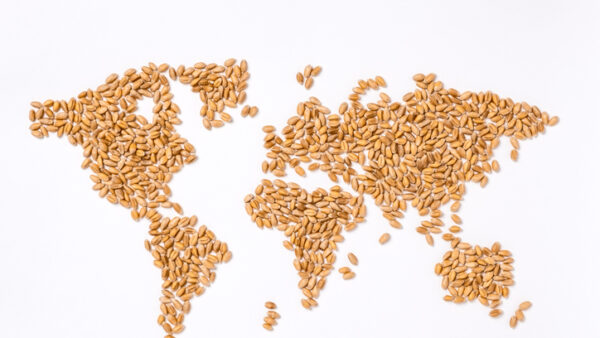In late October, an overwhelming majority of the European Parliament voted in favour of adopting the Farm to Fork strategy. The move kicks off a domino-effect on farmers, agricultural companies and, ultimately, consumers.
This strategy for farmers and agriculturalist in the EU has admirable intentions but potentially devastating consequences. While the authors intend for the strategy to reduce the impact of climate change, the reality is, it would likely increase food insecurity, reduce farmer income and make countries in the EU less competitive on a global scale.
Here’s a quick rundown of some of the ag-facing proposed changes, specific to crops or vegetable production:
- Reduce pesticide use on crops, fruits and vegetables by 50%.
- Cut nutrient losses on farmed ground by 50%, requiring farmers use 20% less fertilizer.
- Boost overall organic production to 25% of the total.
- Take 10% of currently farmed land out of production.
Because of global trade, the impact of Farm to Fork spans beyond just the 27 Member States and would impact people around the world. From trade barriers to the potential for greater hunger, it’s time to pay attention.
Policy Stands on Shaky Ground
As the strategy inches toward implementation, global trade and food security concerns mount.
“When we first saw this policy come about in May 2020, there was no economic assessment provided by the European Commission at the time,” says Jayson Beckman, USDA Economics Research Service acting branch chief of the international trade and development branch. “So, we did a deep dive to see how this could impact global agricultural production and food security.”
Their findings on the impact of the decade-long plan are sobering:
- Ag production, specifically in the EU, will decline from 7% (global adoption) to 12% (EU-only).
- Global adoption drops worldwide production 11%.
- Food supplies will tighten in the EU, resulting in price increases per capita. Prices will increase the most in the EU and will also increase in other regions.
- Trade will decrease, putting more pressure on the most food-insecure nations.
- With EU-only adoption, food insecurity (less than 2,100 calories per day) will increase by 22 million people. Global adoption increases hunger by 185 million.
While a publication did eventually get released in the EU, it was late enough that much of the findings were not considered in the Parliament’s decision.
“The late publication of the Joint Research Centre’s report on the impact of EU’s objectives has made it almost impossible to fully address its findings in the discussion and in the final text. Euroseeds strongly supports the clear call from the Parliament to perform such comprehensive Impact Assessment… Commission, Member States and Parliament now have to discuss in earnest how to implement the initiatives and targets as promised: in a way that leaves no one behind,” Euroseeds said in response to the vote by Parliament.
As criticism for the strategy continues to come to light, many question why agricultural groups’ views were not considered before publishing the recommendation. From seed companies to row crop farmers to vegetable and livestock producers, there isn’t a single facet of agriculture that won’t be impacted by Farm to Fork.
https://www.youtube.com/watch?v=sHe8Mzwho3g&list=PLy-JQ6AUMSc8WUN1v_QN9PG5tkUMkMa0Y&index=21&t=6s
Opportunities for Innovators
With increased organic acres, decreased pesticides and less land, seed companies will fight an uphill battle to maintain – let alone – increase production. It could provide opportunity for differentiation and innovation.
“Increasing organic land is a trend we’re already seeing,” says Cesar Gonzalez, Euroseeds manager of public affairs. “Right now, we’re around 8.5 per cent organic production in Europe, including permanent crops and pastures. We have nothing against organic if it’s a demand-driven increase. Companies are willing to engage and provide seed for that growing market.”
The knowledge gap in Farm to Fork is showcased in the 25 per cent of total agricultural land. Consumers desire more organic produce – fruits, nuts and vegetables. However, 25 per cent total organic production cannot be achieved through produce alone.
“The question remains, what are these other production practices that will move to organic?” Gonzalez continues. “And will there be policies that incentivize farmers to move to organic while remaining economically viable?”
Not only is the switch from conventional production to organic costly, but farmers could also lose money in yields with organic and the overall call to reduce pesticides by 50 per cent. One positive from Farm to Fork is recognizing the value of plant breeding, including novel genomic techniques, and the importance of ensuring seed security and diversity in the report as a precondition to achieve the strategy’s objectives.
“These novel genomic techniques provide a way to overcome some of these challenges we will face,” Gonzalez says. “It would provide the market with new varieties that perform better and achieve sustainability goals.”
EU’s commitment to sustainability – and Farm to Fork – could open doors for novel genomic techniques, in fact, a recent study by the European Commission pushes the issue.
“Novel genomic techniques can contribute to a more sustainable food system and therefore, current GMO legislation adopted in 2001 is not a fit for these technologies,” according to a press release from the Commission.
Independent stakeholders echo the findings.
“European agriculture will need these new technologies to develop plants better suited to environmental challenges, i.e., more resistant to diseases and harmful insects, allowing the decreased use of chemicals and resilience to climate change,” according to the French Association of Plant Biotechnologies.
All benefits that align with goals described in Farm to Fork – pending novel genomic techniques get the green light.
Next Steps
While Parliament did vote to accept Farm to Fork, it wasn’t without caveat. The lawmakers recognized to achieve the goals outlined in the strategy, more research needs to be completed.
The amendment to the strategy states:
“…recent studies, conclude that the implementation of the Strategy’s targets would have substantial impacts on agricultural production in the EU; whereas these studies underline the need for robust, scientific ex-ante impact assessments, covering sustainability from the economic, social and environmental perspectives and the need to take into account cumulative effects, possible trade-offs, the availability of the means to achieve the targets and different farming models across the Member States as part of any legislative proposals under the Farm to Fork Strategy.”
The call for more research is welcomed by industry.












